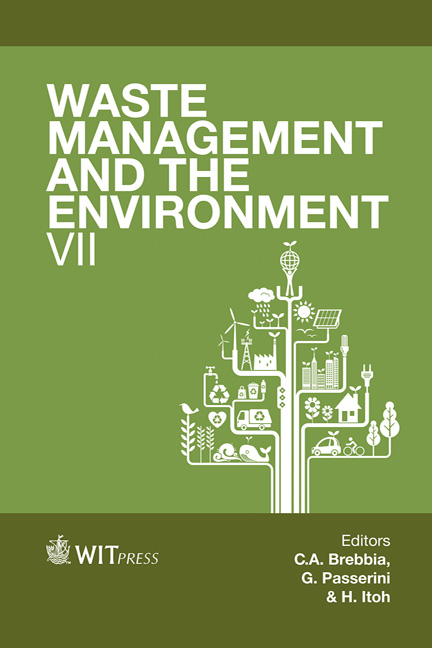Developing A Theoretical Behavioural Framework And Identifying Its Association With UK Industry Evidence On Waste Re-use
Price
Free (open access)
Transaction
Volume
180
Pages
13
Published
2014
Size
640 kb
Paper DOI
10.2495/WM140221
Copyright
WIT Press
Author(s)
P. Tavri, S. Sayce & V. Hands
Abstract
This paper, which forms part of a larger research project, starts from the premise that there is an ambition to make the re-use of materials a normative organisational behaviour. It develops a previous literature review of barriers to organisational environmental behaviour change and presents a theoretical framework of behavioural theories, which assist in building ‘associative strength’ among businesses and individuals: a condition identified as critical to enabling normative behaviours to develop. It also provides an initial pilot test analysis, based on the framework of five UK organizations chosen as likely to be in the vanguard of moves towards re-use given their status as WRAP case studies and based on their own published data. In this paper, re-use refers to the management and processing of materials or items which are re-used, repurposed, repaired or redeployed thus delivering environmental, social or economic benefits to the businesses involved. A range of behavioural theories are considered and reflected within the framework, including automaticity, situational norms, identity relevance, persuasion, normative beliefs and messages, misperceptions and Corporate Social Responsibility (CSR). The proposed framework contributes by offering a systematic interpretation of different studies under a single theoretical framework. Furthermore, the pilot test analysis provides an initial interpretation of organizational behaviours and practices which might enable others to move up the waste hierarchy. Keywords: waste re-use, normative behaviour, associative strength, communication, engagement, behavioral change maintenance, value action gap, pilot test analysis, theoretical framework.
Keywords
waste re-use, normative behaviour, associative strength, communication, engagement, behavioral change maintenance, value action gap, pilot test analysis, theoretical framework.





